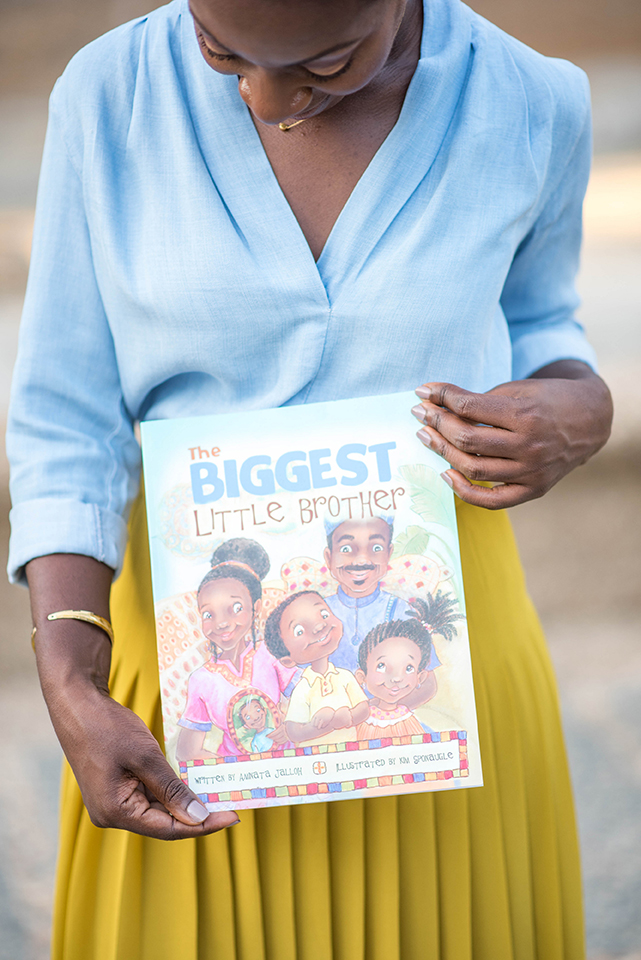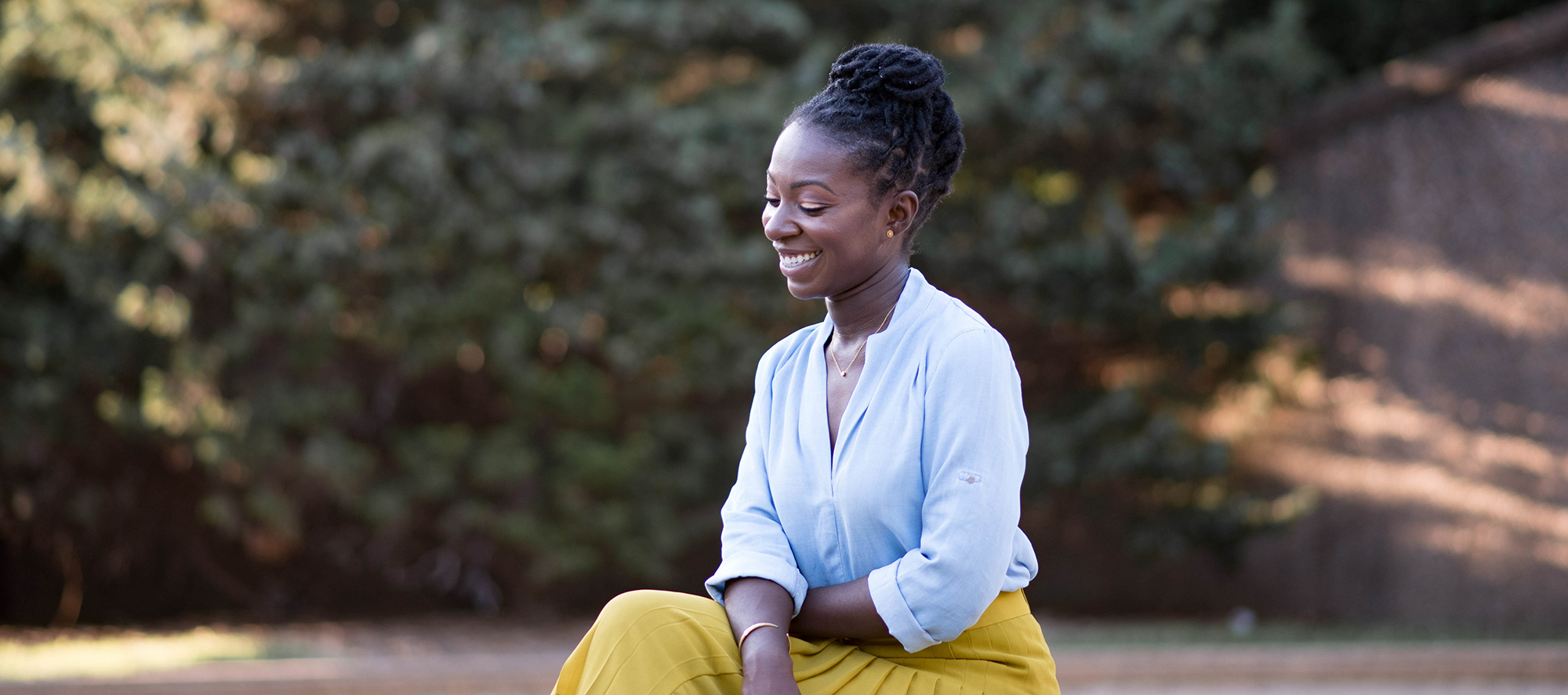 Aminata Jalloh ’10, American studies, recently published her first children’s book titled The Biggest Little Brother, a story about the complexities of sibling relationships and immigrant families. Here, the first-generation Sierra Leonean-American shares how her time at UMBC shaped her career in teaching and writing for children.
Aminata Jalloh ’10, American studies, recently published her first children’s book titled The Biggest Little Brother, a story about the complexities of sibling relationships and immigrant families. Here, the first-generation Sierra Leonean-American shares how her time at UMBC shaped her career in teaching and writing for children.
– Allison Cruz ’18
How did your education at UMBC impact your career in teaching and now writing children’s books?
I was always interested in the experiences of first and second generation Americans, so attending UMBC and majoring in American studies was a natural fit. It was an interdisciplinary area of study which allowed me the scope to go both deep and wide on issues of how race, ethnicity, national origin, and class intersect.
I also opted to add an Africana studies minor to further explore the construction of racial identity by and for people of African descent, and how both shapes their experiences. My studies at UMBC gave me the theoretical framework and the language to articulate the unique experiences many people from black immigrant background have.
The Biggest Little Brother is loosely based on your own childhood experiences as a first-generation Sierra Leonean-American. In what ways is this book based on your experiences and in what ways is it a story you created?
I was the first in my family to be born in the United States. When my parents moved to the U.S. – my father came first and later my mother came – they were unable to bring my sister. Unfortunately, family separation is more common than it should be in immigrant communities. It was through this lens that I wrote The Biggest Little Brother, through this experience of adjusting to a new family member moving in, and the complexities it brings. I also wanted to normalize family structures like my own.
Why did you choose children as your audience for this story? Have you always had a passion to write for children?
After graduating from UMBC, I began my career in education as a classroom teacher for kindergarten to 3rd grade in Washington, D.C.! Many of my students were first- and second-generation Americans from Central America and East and West Africa. I loved teaching reading and wanted to supplement the core curricular materials with stories that not only reflected their own experiences but also provided opportunities to learn about other cultures.
However, there was an absence in children’s literature with immigrant themes, particularly in stories with African lead characters. I struggled to find children’s stories that captured the unique complexities of immigrant families in a way that was authentic, relatable, and enjoyable to read. This absence inspired me to write The Biggest Little Brother because I believe that every child has the right to see themselves in the books they read.
What do you want your child audience to learn from your book, and what lessons should they come away with?
Children’s literature has the remarkable ability to reinforce and change narratives. I hope with The Biggest Little Brother children will see that every family is unique and special and that we are more alike than we are different.
What goals do you have for the future? Would you like to write more children’s books?
Yes, I would love to continue the story of Sowa and his family! Also, I want to continue promoting children’s literature with dynamic African lead characters! I curated a list of really great titles on my website www.readersinspired.com and I post related content on Instagram via www.instagram.com/readersinspired.
Tags: American studies, Aminata Jalloh, Children's Book, Sierra Leone, The Biggest Little Brother, UMBC Author

